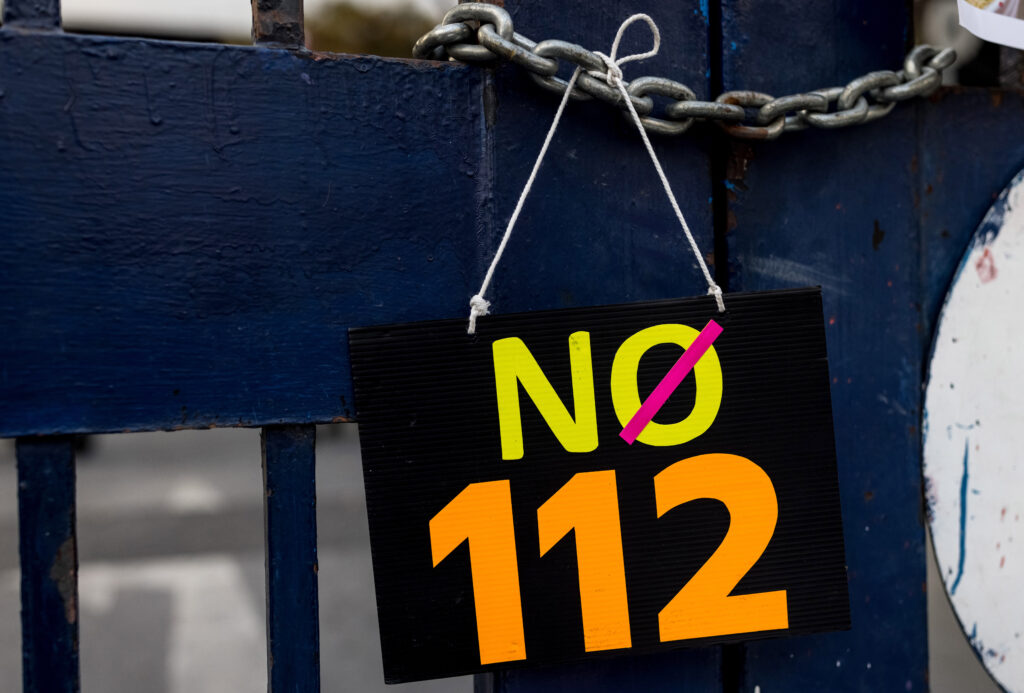A US academic charged with breaking Thailand’s strict royal defamation laws was granted bail on Wednesday, his lawyers said, but remains in custody pending an appeal to immigration authorities who earlier revoked his visa.Paul Chambers, who has spent over a decade teaching Southeast Asian politics at a Thai university, was arrested on Tuesday after reporting to police to answer a charge of lese-majeste.His case is a rare instance of a foreigner falling foul of strict laws which shield King Maha Vajiralongkorn and his close family from any criticism and can lead to decades-long prison sentences.”The Appeal Court… issued an order granting bail for Paul,” said a post on X from the Thai Lawyers for Human Rights group (TLHR) representing Chambers.”Paul will remain in custody at Phitsanulok Provincial Prison until the result of the bail request from immigration police is known.”His lawyer Wannaphat Jenroumjit earlier told AFP that immigration authorities had visited Chambers in detention and informed him his visa had been revoked.Wannaphat said Chambers was “not confident but remains hopeful” in the Thai justice system.The Thai military filed a complaint against Chambers this year over an article linked to a think-tank website which focuses on Southeast Asian politics.He told AFP last week he felt “intimidated” by the situation, but was being supported by the US embassy and colleagues at his university.The US State Department said Tuesday it was “alarmed” by the arrest. Chanatip Tatiyakaroonwong, a researcher at Amnesty International who campaigns for the release of political prisoners, said the visa revocation was meant to “intimidate” Chambers.”They found his work threatening, so revoking his visa means he can no longer remain in Thailand and continue his work,” he told AFP.”The visa revocation is meant to send a message to foreign journalists and academics working in Thailand, that speaking about the monarchy could lead to consequences.”International watchdogs have expressed concern over the use of the laws — known as Article 112 — against academics, activists and even students.One man in northern Thailand was jailed for at least 50 years for lese-majeste last year, while a woman got 43 years in 2021.In 2023, a man was jailed for two years for selling satirical calendars featuring rubber ducks that a court said defamed the king.
A US academic charged with breaking Thailand’s strict royal defamation laws was granted bail on Wednesday, his lawyers said, but remains in custody pending an appeal to immigration authorities who earlier revoked his visa.Paul Chambers, who has spent over a decade teaching Southeast Asian politics at a Thai university, was arrested on Tuesday after reporting to police to answer a charge of lese-majeste.His case is a rare instance of a foreigner falling foul of strict laws which shield King Maha Vajiralongkorn and his close family from any criticism and can lead to decades-long prison sentences.”The Appeal Court… issued an order granting bail for Paul,” said a post on X from the Thai Lawyers for Human Rights group (TLHR) representing Chambers.”Paul will remain in custody at Phitsanulok Provincial Prison until the result of the bail request from immigration police is known.”His lawyer Wannaphat Jenroumjit earlier told AFP that immigration authorities had visited Chambers in detention and informed him his visa had been revoked.Wannaphat said Chambers was “not confident but remains hopeful” in the Thai justice system.The Thai military filed a complaint against Chambers this year over an article linked to a think-tank website which focuses on Southeast Asian politics.He told AFP last week he felt “intimidated” by the situation, but was being supported by the US embassy and colleagues at his university.The US State Department said Tuesday it was “alarmed” by the arrest. Chanatip Tatiyakaroonwong, a researcher at Amnesty International who campaigns for the release of political prisoners, said the visa revocation was meant to “intimidate” Chambers.”They found his work threatening, so revoking his visa means he can no longer remain in Thailand and continue his work,” he told AFP.”The visa revocation is meant to send a message to foreign journalists and academics working in Thailand, that speaking about the monarchy could lead to consequences.”International watchdogs have expressed concern over the use of the laws — known as Article 112 — against academics, activists and even students.One man in northern Thailand was jailed for at least 50 years for lese-majeste last year, while a woman got 43 years in 2021.In 2023, a man was jailed for two years for selling satirical calendars featuring rubber ducks that a court said defamed the king.
